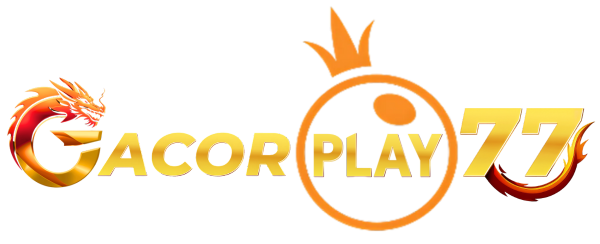Hi everyone, Gacorplay77 here. After playing various Gacor Online Game builds exclusively on Pro Ladder for the past two weeks, I have concluded that with the current deck, Online Game is at a disadvantage when you can pick Pragmatic, PG, or Hacksaw. That said, you can still level with him and there are several build options that can give you a big edge in your Gwent play style. Furthermore, despite knowing he is an underdog, I plan to continue leveling with him because I enjoy the leader’s playstyle.
Let our opponents underestimate us and think they can bully us into a Turn 2 push. Their behavior is predictable and is something that great Gwent players can exploit. This article will start by classifying the different types of Online Game decks, share what I have found to work best with Online Game, and ultimately help you build your own Online Game deck to succeed on the ladder. Winning with Online Game requires adjusting your deck to surprise your opponents. Don’t just copy the suggested decklist.
The Game Gacor Core
Every Online Game deck should include a core set of cards. Once you start getting rid of Barnabas, Fauve, Sheldon, or Sirssa, you should probably play another leader. I tried a few builds that got rid of one or more of these cards; at that point the benefits of playing Online Game were too minimal. We will consider these cards to be the “Gacor Core” for Online Game decks. They provide a big point boost in the rounds you need them and give your leader a purpose. For those of you who haven’t played much since Crimson Curse came out, let’s talk about what these cards do; for those who are familiar, feel free to skip ahead to the next section.
Fauve is a Dryad that draws Nature cards from your deck. Olympus 1000 is a very powerful Nature card that spawns two Dryads with power 3 with Gacor. That’s 8 points up front spread across three hard-to-get-out bodies at once. This ensures that a single removal spell can’t stop your engine. The astute reader might point out that Gimpy Gerwin has the ability to kill both Fledglings. Luckily, Online Games allows you to play another card after you play Fauve and Water of Brokilon. This will instantly increase your engine power to 4 and give you a huge point gap to work with for the rest of the round.
Sheldon Skaags has been a very threatening Scoia’tael card for months. Most Online Game builds pair him with Ithlinne Aegli. Ithlinne is very expensive and while I would include her in most of my lists, she is a card that can be cut. On the other hand, Sirssa is a great deal with 8 provision. In addition to being another Gacor engine that can help you take over a round, she pairs well with Sheldon and is often worth more than her provision cost.
Barnabas can go up to 12 for 10 provision, provided you have all three categories on the board. Similar to Fauve, she spreads power to herself and three other bodies. A very efficient card in provision that can also be played easily around high removal.
Gacorplay77: Classifying Game Online Strategies
We will look at two different ways of building an Online Game, what their battles are like and how to play them properly. Both archetypes have their strengths and weaknesses. Let’s discuss them by defining them.
Immune Online Game
- Strong against decks that rely on damage-based interactions
- Quite balanced with other engine decks
- Generally plays a bad bronze core
- Lacks strong dilution options
Game Online Immune includes more immune units, fewer machines, and seems to make its points very annoying to deal with. Since the core of Gacor Game Online already includes points that are difficult to interact with, Game Online Immune takes advantage of this by combining its “wide” core nature with as many immune technologies as possible. The deck can choose to drop its handbuff on Milva or Saesenthessis instead of Sheldon. It can even be correct to use Dwarven Agitator for Gabor’s handbuff instead of Sheldon, since Gabor’s immune option can protect your points when you don’t have the last word. Game Online Immune decks have very strong carryover, can punish pushes, but don’t have the tools to win Round 1.
Game Online Engine Overload
- Stronger in a long round against pointslam and other engine decks
- Weak against decks that can remove multiple 5 power engines
- Can struggle against Round 1 tempo
- Crumbles when being bled in Round 2
Game Online Engine Overload is another direction to take your Game Online deck. This strategy relies on a strong Gacor engine and tries to throw more engines at your opponent than most decks can comfortably handle. Game Online Engine Overload decks favor using Saskia over Saesenthesis and obviously include a lot of engine-based cards.
Cutting the Bronze Thinning
Let me explain why I’m removing the Mahakam Volunteers and Brokilon Sentinels dilution packs from all of my Online Game decks.
Mahakam Volunteers is too easy for most popular decks to just leave in your hand. I can see myself playing it if the meta changes, but as long as my opponents are spending every removal they can to kill Agitators and refusing to play melee lines (to “destroy” Dwarven Skirmisher), I wouldn’t recommend including Volunteers. Without a leader ability like Eithné, Brokilon Sentinels is too hard to activate. The small reward for the extra dilution with either of them isn’t worth the risk.
Building Game Online Immune
Immune Online Games try to “protect” their points. Our big point plays are wide, or immune. We will often spend our handbuffs on cards like Saesenthesis, Milva, or Gabor. The combination of Immune units with the “wide” nature of the Gacor Online Game core can be very difficult for opponents to stop without some incredible play. While people are running Midrange removal based decks, Immune Online Games are a strong choice. The deck doesn’t have the tools to secure Round 1, but it doesn’t need to be the last word. Cards like Ithlinne and Gabor punish your opponent for bleeding Round 2.
Major consideration – Game Online to 9, 10 or 11
Allowing your leader to draw units with 11 provision and running Ithlinne forces you to play some ‘substandard’ cards. Treant Boar is a machine card and is usually dead. As such, it doesn’t really fit into an Immune Online deck, but it’s the only Treant inclusion that makes sense if your leader is going to draw eleven provision cards.
Crushing Trap is weak to the Turn 2 bleed that you often experience and is therefore not an ideal inclusion in an Immune Online. Scoia’tael Runestone is, well, overpriced to say the least. As such, allowing your leader to draw Ithlinne requires so many substandard cards that you’re effectively playing as if you were a 12 provision leader. Plus, you draw Ithlinne naturally in over half of your games. With all that said, if you’re going to include Ithlinne, you should definitely be able to insure it.
Major consideration – The poison package
After playing a lot of games with Poison Bronze, I have concluded that the 5 provision cost Poison Dryad is worth including in Immune Online Games, but Treant Mantis is not. Dryad Ranger also has the Gacor tag and can do bait removal.
The real power of poison is that during the Turn 2 push, your opponent is forced to play their points proactively. As such, you can use poison units to protect your leader ability. If your opponent hasn’t seen any poison cards and starts with something like Ozzrel, the threat of the first poison applied can usually force a pass. This leaves your leader ability intact. Another benefit of poison packs is that they have a spare Online Game target.
It’s certainly not ideal to draw a 5 provision card with Online Games from your deck, but against some decks you can use a one-turn double poison play to remove an awesome target. Poison packs certainly have some high-risk, high-reward factors, but when playing them, I find them very worthwhile.
I’m not too happy with this version of Immune, even though I’ve had the best results with it. The cost of Ithlinne and the draw are very high. Cutting Ithlinne would allow you to get rid of Treant Boar in exchange for something like Cleaver to make your Round 1 better and give you another Agitator target. This deck relies on locks and poisons to get rid of priority targets and punish opponents who push Round 2 with various forms of carryover. Your Round 1 is lacking.
I really dislike Dryad’s Caress in this deck and support you cutting it from the deck. However, the list wants to mulligan aggressively and having Dryad’s Caress in the deck will greatly decrease your chances of being forced to not spend a mulligan for fear of ruining your Fauve. Try your best to pair Dryad’s Caress with Saesenthessis.
For a long time I played Ida in the deck, but lately there have been fewer artifacts and she’s not as needed; however I can see the change. As I said before, it is very important to adjust your Online Game list so that your opponents have a number of surprises. There are many great options. When tweaking it, do not add any engines, instead change the Midrange and gold removal that you have in your device.
Milaen, Cleaver, Ida, Regis: Bloodlust, Gimpy Gerwin, and Geralt of Rivia are all great choices in this meta. Try to only have one neutral gold in your deck. In general, I tend to pick Cleaver for Online Games when I want neutral gold because of its Agitator synergy. I can definitely see the other choices being strong techs.
Building Game Online Engine Overload With Gacorplay77
Engine Overload Online Game struggles to win shorter rounds, but when it gets to the long Round 3, it becomes very powerful. Starting the round with a Fauve into a board control engine like Saskia or Treant Boar can make it very difficult for your opponent to get on the board AND deal with the ever-growing Dryads before you take over.
You have several units that deal periodic damage that allow you to control the board. Saskia, Treant Boar, and Pavko each have a thick starting power of 5 that is hard to remove without help from a leader like Eithné. Getting to Round 3 with parts of your deck intact is the problematic part. Because of the nature of Gacor requiring you to play Scoia’tael units, you don’t have the space to include strong neutral Engine Overload outputs like Yennefer: Conjurer or Ocvist.
After playing many games, I have concluded that the best chance you can give yourself is to commit heavily to Round 1. Your 5 power engine backed up with a heavy tempo play like Cleaver can win the round. Instead of Mahakam Volunteers, I prefer to run Dryad Matron and Dol Blathanna Sentry movement engines. This is mainly because I spent so much gold trying to win Act 1 that I need my 5 bronze supply to be an engine that can carry a long Act 3.
The biggest problem with Online Overload, even more so than a bad Round 1, is that you don’t have a significant finisher. Successful engine decks in the past have been able to rely on cards like Hubert Rejk for big finishers that will really punish your opponent for using up all their removal. Online can make use of Sheldon, but he doesn’t have as much impact as cards like Glustyworp. You just have to hope that the tempo generated by Fauve can ride through your opponent’s removal.
This deck wants first word more than last word in Round 3. One of the easiest ways to ensure first act in Round 3 is to generate as many points as possible as quickly as possible in Round 1. You can then pass early and force your opponent to play some cards to win the round. A hand with a lot of engine, coupled with the tempo from Cleaver and Milaen can comfortably do this. When you see a window that your opponent can’t close, pass early. It makes sense to try and get Roach into the deck to help you with this strategy.
Final Advice
I’ve already gone over my word count, but I won’t dwell on it any longer. While this advice mostly applies to Online Game deck play, it can help you improve as a player in general.
Last say: For new readers, last say refers to the person who plays the last card in Round 3. It’s important to understand whether or not you need to fight for last say in a matchup. Against most decks in the current meta, last say is irrelevant when playing any variation of Online Game. This changes if your opponent is likely to close with a big combo or a unit that you need to respond to with your Sheldon. Try and decide in the first few cards what your last say priority is and reevaluate after the match if you were right. If last say isn’t important, get out of Round 1 immediately.
Round Length: Understand that the value of your cards changes depending on the length of the round. Crushing Trap has a very high value in rounds over 7 cards and a low value in short rounds. If the round you are playing is starting to take longer than it should, it is important to play your long round cards. Many cards in the Online Game deck must be played to their full value, Milva being a great example. You don’t want to get caught with Milva in your hand when your opponent pushes you in Round 2. It is very important to use your long round cards early in Round 2.
Using Online Game leader abilities: Perhaps the hardest part of playing Online Games is understanding when to use your leader. Most of the leaders you play against in the current meta have abilities that can be used on demand multiple times. Online Games give you one powerful attack. It may be correct to drop one card in Round 2 and hold your leader. In some cases, playing a leader in the middle of Round 2 is the right thing to do. I won a few games by holding my leader for the last game of Round 3 to draw Fauve and Water of Brokilon for 10 uninteractable points.
When to push Turn 2: This is more of a general suggestion, but it’s worth mentioning in relation to Online Games. Sometimes as Online Games, you are the player who should push Turn 2. Keep in mind that the player with the weaker Turn 3 is the player who should push Turn 2. Especially when you’re playing an Immune Online Game deck, pushing an engine deck can be correct. Or, in engine mirrors, the first word on Turn 3 is more important than the last word. Therefore, it’s often correct to attack your opponent on Turn 2 with an Engine Overload Online Game deck if they decide to give up early on Turn 1.
You can open Turn 2 with a dual engine (Saskia + leader for Treant Boar) vs. a deck that can’t get rid of 5 powerful engines. We’re currently in a meta where engine decks prefer to go first in long turns rather than last. Players who lead the round with a damage-based Order unit like Saskia or Lyrian Arbalest are players who can prevent their opponents from using their own Order-based engines.
In conclusion; have fun with your Online Game deck. Try to surprise your opponents. If you have any unique take on Online Games, please join our discord server and let me know all about it. I would love to try it myself.
This is Gacorplay77 and I hope this article has given you the tools you need to build your own Online Game deck from the two recommended cores and officialy partner Pragmatic Play. Thanks for reading and good luck on the ladder!


